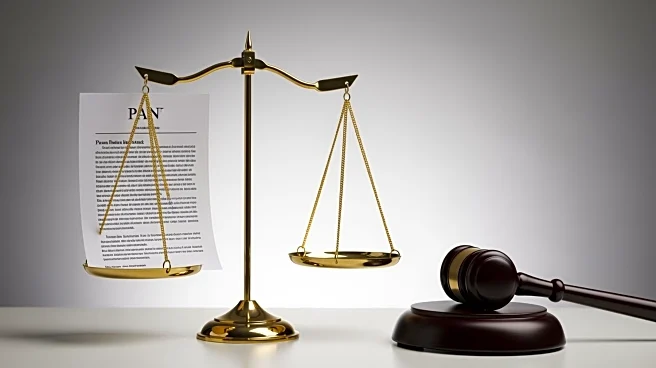What's Happening?
The United States Patent and Trademark Office (USPTO) has issued a Notice of Proposed Rulemaking, an Open Letter, and a Memorandum that aim to impact the value and availability of Inter Partes Reviews (IPRs). Effective October 20, 2025, the proposed changes
seek to enhance procedural efficiency and reduce duplicative proceedings by limiting the circumstances under which IPRs can be instituted. The new framework will prevent the institution of IPRs when another proceeding is likely to resolve patentability or validity first, or when the PTO or another tribunal has already adjudicated the patentability or validity of the same claims. The proposal also requires IPR petitioners to stipulate that they will not pursue invalidity challenges under 35 U.S.C. §§ 102 or 103 in other forums. These changes are intended to harmonize administrative adjudication with judicial proceedings, ensuring that patent disputes are handled efficiently and with finality.
Why It's Important?
The proposed rulemaking by the USPTO is significant as it could alter the landscape of patent litigation strategy in the United States. By limiting the availability of IPRs, the changes may shift more patent validity disputes to district courts and the U.S. International Trade Commission, potentially increasing the workload of these judicial bodies. This shift could affect companies and litigants who rely on IPRs as a strategic tool to challenge patent validity. The requirement for petitioners to stipulate not to pursue certain invalidity challenges elsewhere aims to prevent duplicative litigation but may also restrict legitimate defenses. Stakeholders, including practitioners and industry groups, have the opportunity to provide feedback during the comment period ending November 17, 2025, to refine these provisions and ensure they achieve their intended effect without negatively impacting existing litigation strategies.
What's Next?
Stakeholders are encouraged to participate in the comment period to suggest refinements to the proposed rulemaking. Potential areas for discussion include aligning stipulation requirements with the statutory scope of IPRs, introducing procedural safeguards for managing timing across multiple defendants or parallel proceedings, and defining 'exceptional circumstances' with illustrative examples to enhance predictability. The USPTO's proposed changes reflect an ongoing commitment to enhancing the integrity and efficiency of the patent system, and thoughtful input during the comment period can help shape a more predictable and sustainable post-grant review landscape.
Beyond the Headlines
The proposed rulemaking could have deeper implications for the patent system by potentially reducing the number of IPRs and shifting the focus to judicial proceedings. This may lead to increased costs and complexity for companies involved in patent litigation, as district courts and the U.S. International Trade Commission may become the primary venues for resolving patent disputes. Additionally, the changes could impact innovation by altering how patent validity is challenged and upheld, potentially affecting the balance between protecting patent holders and encouraging competition.















